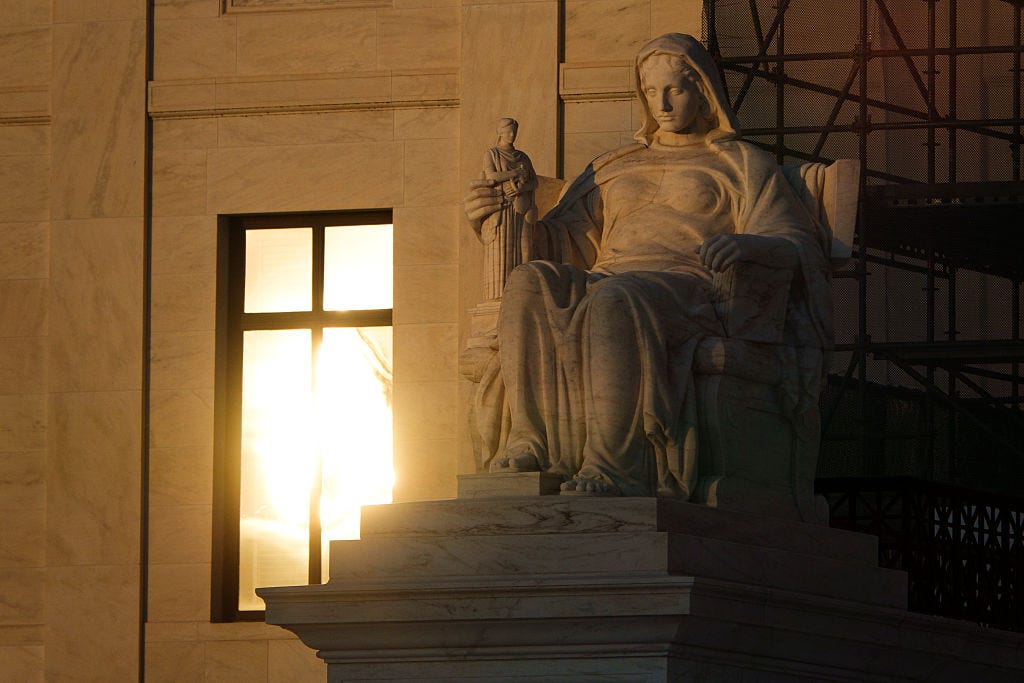The Supreme Court’s new trick: unexplained verdicts
What is the law if the Supreme Court doesn’t bother to tell us? We explain the rise of the shadow docket charade
Join us today, Wednesday, July 16, at 12:30 p.m. Eastern, when we’ll speak with American Federation of Teachers president Randi Weingarten. Watch on desktop at The Ink or join us from a phone or tablet with the Substack app.
In today’s letter, we break down a stealthy move on the rise at the Supreme Court, in which major decisions are made without what used to be the heart of a verdict: an actual explanation. And we examine why this matters and how it fits into the authoritarian trajectory under Trump.
When we talked to retired federal Judge David S. Tatel a year ago, he told us something that at the time was astonishing: that part of what informed his decision to step down from the federal judiciary was that the right-wing Supreme Court majority had pulled the rug out from under the legal profession, leaving lawyers and judges with no way to understand what the law should be:
I'm bound by Supreme Court decisions as an appeals court judge, and I take that responsibility very seriously. I got affirmed many times by the Supreme Court, and I got reversed. And I didn't mind being reversed by a decision I thought was a legitimate act of judgment.
I became increasingly uncomfortable with having my work reviewed by an institution that just isn't functioning in a way I learned courts are supposed to function. These made-up doctrines like “major questions” — I thought they were so unprincipled. It would have been my obligation to figure out what those mean and apply them. I didn't want to spend the rest of my life figuring out how to obey the Supreme Court.
But as with so many things in American politics, what seemed shocking a year ago is now commonplace.
What Tatel had in mind was the Court’s invention of new doctrines and reliance on malleable-to-fit-the-occasion theoretical frameworks like originalism. But while decisions full of impossible-to-interpret arguments are bad enough, no argument at all is worse. And the Supreme Court has increasingly delivered significant rulings via the so-called “shadow docket,” the emergency list of cases that haven’t yet reached a final judgment by a court (cases where stays or injunctions have been issued, for instance), but the Court has an urgent need to weigh in on. In the past, the shadow docket was used for actually urgent matters — requests for stays of execution, for example.
During the past term, however




